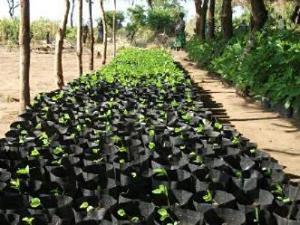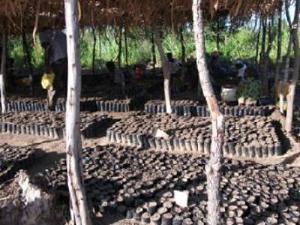Henderson Maposa
Other projects
8 Oct 2013
Introduction of Agroforestry Practices within the Mikolongwe Valley for Soil Improvement and Wood Supply to Protect the New Mountainside Forest
The project aims to mobilise Mikolongwe mountainside communities to plant fast-growing Albizia and Afzelia trees around the Mountain and promote practices aimed at preventing damage to the new forest.
The project ‘one leader one forest’ is a forestry initiative aimed at mobilizing 5 communities surrounding Mikolongwe Mountain, through their leaders, to plant a fast growing Albizia lebbeck and a native Afzelia species over a stretch of 100 meters up the mountain.

The Mikolongwe Mountain is surrounded by nine villages, all controlling their separate parts of the mountain side. The mountain side belonging to one village benefits inhabitants of the same village. 90% of the people in the area earn their living by farming. Limited private property rights over customary land, in line with traditional laws, has made it possible for farmers to clear new land in originally forested areas. Today all available land, from roadsides to mountain summits including the Mikolongwe itself, is cultivated.

Forest clearing in the mountain has created problems, both ecological and social. During rain seasons December-March), heavy rains gather in fast-running streams of water in the mountainside, which again gather in more forceful rivers the further down the mountain they come. These powerful rivers take with them riverbank soil on their way down, decreasing the amount of soil in the mountain side and damaging the gardens in the valley underneath the mountain where much of the food production takes place. This, in addition to continued scarcity of wood for cooking and poles for house construction, has necessitated the need for the mountain-side reforestation action being referred to as One Leader One Forest in this case, considering the fact that each community leader together with their subjects shall work with their own particular section of the mountain.
A diversified approach to forest restoration, where fast growing acacias are planted together with indigenous species will make it possible for the communities to have access to wood for cooking as well as poles for house construction and timber in a short time of planting, by harvesting the fast-growing acacias while the native trees will be preserved to maintain the balance of the forest, providing the community ecological services such as erosion control and water retention. Availability of wood for cooking within a walking distance would reduce the time women spend fetching firewood, allowing them ample time to attend to other domestic commitments.